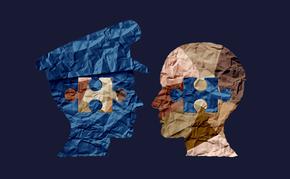The views expressed in our content reflect individual perspectives and do not represent the authoritative views of the Baha'i Faith.
The Baha’i teachings advocate for humanity and morality in our economic activities—and also their incorporation into our economic systems.
But how does humanity and morality—spirituality, really—fit into an economic system? To most people, those subjects sound completely separate.
I’m an economist, so it surprised me when I learned that the first book written by 18th Century Scottish economist Adam Smith was The Theory of Moral Sentiments. It was published seven years before his magnum opus The Wealth of Nations, which founded modern economic theory and virtually invented the idea of the free market. Moral values and modern economy? It never occurred to me that morality might be part of his philosophy.
But the Baha’i writings also speak of a fundamentally spiritual solution to the world’s economic problems:
No religious books of the past prophets speak of the economic question, while this problem has been thoroughly solved in the teachings of Baha’u’llah. Certain regulations are revealed which insure the welfare and well being of all humanity. Just as the rich man enjoys his rest and his pleasures surrounded by luxuries, the poor man must likewise have a home, be provided with sustenance, and not be in want. Until this is effected happiness is impossible. All are equal in the estimation of God; their rights are one and there is no distinction for any soul; all are protected beneath the justice of God. – Abdu’l-Baha, Star of the West, Volume 6, p. 5.
Every economist studies The Wealth of Nations, and most will tell you that Adam Smith’s work is all about the science of making wealth. His ideas have formed the guidelines for so many economists, and his words are still the accepted authority on the subject. His influence is still felt and his assumptions are still the foundation of economics.
But Adam Smith certainly recognized the inherent danger of wealth, even as he provided ideas for generating it:
This disposition to admire, and almost to worship, the rich and powerful, and to despise or, at least, neglect persons of poor and mean conditions, though necessary both to establish and to maintain the distinction of ranks and the order of society, is, at the same time, the great and most universal cause of the corruption of our moral sentiments.
The Baha’i writings make a very similar point:
… the happiness and greatness, the rank and station, the pleasure and peace, of an individual have never consisted in his personal wealth, but rather in his excellent character, his high resolve, the breadth of his learning, and his ability to solve difficult problems. – Abdu’l-Baha, the Secret of Divine Civilization, p. 23.
One of the most prevalent concepts in economy, and one of Smith’s most significant assumptions, was the concept of the “Invisible Hand,” which brooked no interference from government in the economic marketplace—because Smith’s invisible hand would magically solve the problems, balance supply and demand and also fix prices in an unregulated economy. Smith has thus been called the founder of “laissez-faire capitalism,” and denigrated for his lack of a moral component in his economic theories.
But if you combine this “invisible hand” idea with Smith’s Theory of Moral Sentiments, where he says that human beings have a natural tendency to care about the well-being of others, you get a different picture of this conceptual framework:
The administration of the great system of the universe … the care of the universal happiness of all rational and sensible beings, is the business of God and not of man. To man is allotted a much humbler department, but one much more suitable to the weakness of his powers, and to the narrowness of his comprehension: the care of his own happiness, of that of his family, his friends, his country …. But though we are … endowed with a very strong desire of those ends, it has been entrusted to the slow and uncertain determinations of our reason to find out the proper means of bringing them about. – Adam Smith, The Theory of Moral Sentiments, p. 3.
Smith’s quotations indicate that he strongly believed in morality. He discussed the welfare of the individual, saying it depends on the welfare of all: “No society can surely be flourishing and happy,” he wrote in Moral Sentiments, “of which the far greater part of the members are poor and miserable.”
The Baha’i teachings explain how crucial it is to bridge the gap between extremes of wealth and poverty:
God is not partial and is no respecter of persons. He has made provision for all. The harvest comes forth for everyone. The rain showers upon everybody and the heat of the sun is destined to warm everyone. The verdure of the earth is for everyone. Therefore, there should be for all humanity the utmost happiness, the utmost comfort, the utmost well-being.
But if conditions are such that some are happy and comfortable and some in misery, some are accumulating exorbitant wealth and others are in dire want — under such a system it is impossible for man to be happy and impossible for him to win the good pleasure of God. God is kind to all. The good pleasure of God consists in the welfare of all the individual members of mankind. – Abdu’l-Baha, The Promulgation of Universal Peace, p. 312.
The Universal House of Justice recently reminded us of the same important point:
The welfare of any segment of humanity is inextricably bound up with the welfare of the whole. Humanity’s collective life suffers when any one group thinks of its own well-being in isolation from that of its neighbours’ or pursues economic gain without regard for how the natural environment, which provides sustenance for all, is affected. -March 1, 2017.
Smith himself said “To feel much for others and little for ourselves; to restrain our selfishness and exercise our benevolent affections, constitute the perfection of human nature.”
I am so grateful that I discovered the moral side of economics—and how I wish more economists would, too. We need to talk about this in our universities, and make it an essential part of economic studies to learn the relationship between morality and economics.
If the economic system were to truly serve humanity, it should reflect the human, moral and spiritual values of the people who create it.
A person through his own actions and deeds makes himself loved or disliked by the people; or through his own unselfish conduct and behaviour, refined morality and selfless intention, trustworthiness and rectitude he suffers himself to become favoured and beloved at the threshold of God. – Abdu’l-Baha, Star of the West, Volume 4, p. 168.

















Comments
Sign in or create an account
Continue with Facebookor